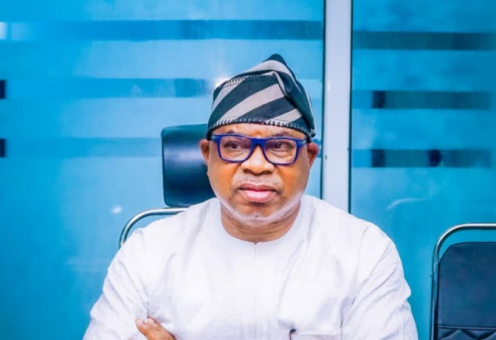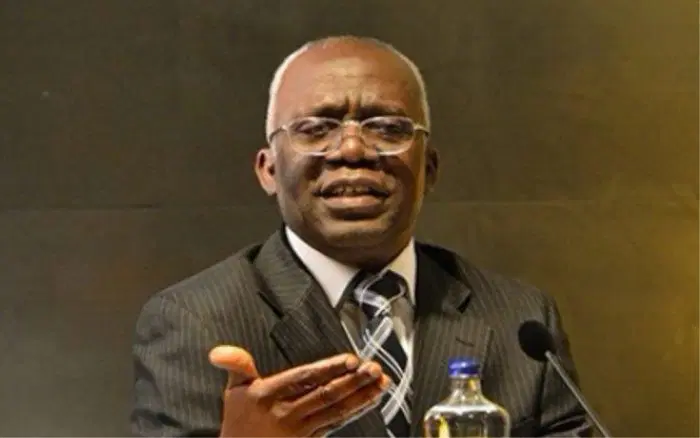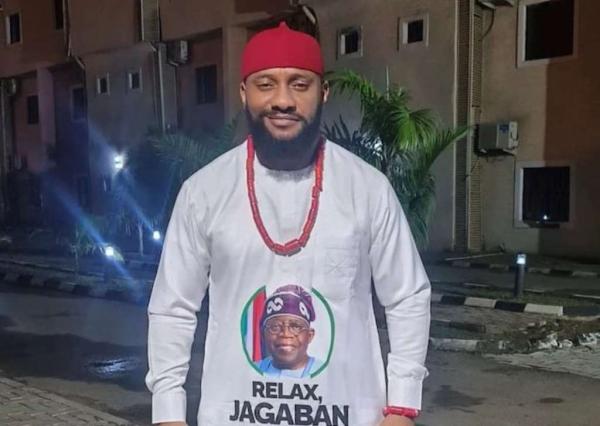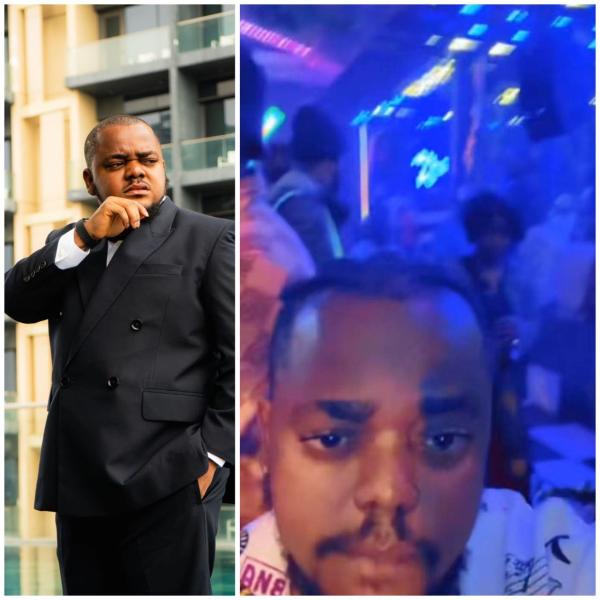
The story of Nollywood is not complete without mentioning Zack Orji, former chairman of Actors’ Guild of Nigeria.
As a student, he was able to realise the direction the pendulum of his life would swing to and never hesitated to latch on the opportunity when it came calling.
In the early 90s when the movie industry was about to gain prominence, he put aside Estate Management degree he earned from the University of Nigeria, Nsukka, and moved over to acting, becoming one of the leading actors.
He spoke to VINCENT KALU on what shaped his life as actor, the challenges and how he surmounted them.
What led you into acting?
I believe it is an area of calling for me. It is an area where you have natural skill and I always tell people that as a child when you are growing up you have to start looking at things you are very good at because everybody is very good at certain things. Even the Bible tells you in the Romans that God has given everybody the skills to excel in certain things. So, part of my growing up was being a member of Dramatic Society both in Cameroun when I was in French school and here in Nigeria. I was also part of the Dramatic Society and we used to go from city to city doing stage plays, and also the speaker of the senior debating society in my secondary school. So, naturally, my inclination lies in that area. Even while in secondary school I wrote a prelate that won my school second position in the then Anambra State, which is now split into Enugu, Ebonyi and the present Anambra states.
The inclination has always been there, so, when the opportunity came about 23 years ago to star in a movie, I didn’t hesitate. The moment I got the opportunity to star in a leading role, it earned me a nomination as the best actor in the first award that was done. I just abandoned every other thing and gave it a full time.
How was your growing up?
My growing was fun; I grew up with loving parents that taught my sibling and I a lot. I grew up in different places. I was born in Gabon, raised partly there and here in Nigeria as well as in Cameroun. I went to French and English schools, so I speak French and English, apart from Igbo, my native language. Growing up was also fun because our parents even though disciplined us, also allowed us the freedom in terms of the kind of things we wanted to wear and where we wanted to go. We used to do words joggling with my father, by going through the dictionaries searching and locating words and seeing the meaning of the words, with different kinds of expressions. That formed parts of my background being grounded in English language.
My growing up also involved a lot of works because at a time we didn’t have any house help so we did every household chores, it is not like these days where almost every middle class person has housemaid, which to some extent makes the children grow very lazy. So, we did everything from fetching fire food from the mountain to carrying different kinds of provisions that my mother bought for her shop to other errands but it was fun because we didn’t think we were being put through punishment or hardship. We saw it as part of the responsibility we have to carry out as children living with their parents.
Between you father and mother who influenced you more?
Both of them influenced me equally but in different degrees and areas. If you talk about my being fluent in English language, a lot of it came from my father. If you talk about being tolerant of other people and treating others fairly it also came from my father, but if you talk of the value of hard work, discipline and sincerity, it came from my mother.
Who was or were your role models when you were growing up?
At the time I was growing up most of my role models were my teachers in school, apart from parents because I admire my father a lot, his sence of dressing, his impeccable command of the language, his sense of cleanliness. When my father dressed he would be the centre of attraction wherever he went. So, I had my father as a role model in a lot of things. I had my teachers also as role models. One of my teachers in school, Mr. Nwankwo taught me a lot of things as far as the English language is concerned, use of vocabulary in various kinds of expression and the need for you to express yourself very distinctly and understandably when you are communicating with people.
If you talk about movies for example, I grew up watching a lot of movies and going to cinemas and watching the likes of John Wayne, Anthonio Sabato etc. I grew up having some of those people as role models and wanting to be like them; wanting to be like my father the way he spoke the language; wanting to be like some of those people and being an actor and things like that.
What was your memorable moment?
I have a number of memorable moments. When I proposed to my wife and she said ‘yes’ was memorable. Prior to that, I had not proposed to any girl. I still remember the night or early in the morning we have gone to a party. During the party, I took her outside and right there proposed to her and she said ‘yes’. I always remember that day. I also remember the day my son was born. It was always a memorable day because the result of the scan had said that baby would be a girl. Based on this we had bought some clothing for a baby girl, which I took to Eko Hospital. He was born there about 10.28 pm and by which time I had left the hospital and gone home and by the time I returned to the hospital with more baby girls wears and the nurses said, ‘congratulations’, you have a baby boy. I didn’t think I heard them very well until I got to the ward, that my wife told me and I saw it was a baby boy. So the first few days, he wore the clothing of a baby girl. I always remember that day. There are so many other days that are memorable to me. I always remember the days when my two daughters were born. My first daughter came ten years after my son and second daughter two years after the first daughter. Also, when I produced my first film, which was Love in Vendetta in 1996 and my directorial debut was a movie called, Web, which was shot in Lagos and Accra. I was part of the Executive producer of the film. There are lots of memorable days both in terms of my career and in terms of your family.
What has been your worst embarrassing moment?
One of the embarrassing moments I have had in my career was when we did the Glamour Girls thereabout 1994, I was in another set, when one man, Alex from Punch newspapers approached me and asked whether it was true that I have been suspended from my church. I felt very embarrassed because I knew I had been suspended from my church. He didn’t get any clarification and went ahead and published in the newspaper that I have been suspended from the church.
Another time, I was walking along the street, some people accosted me and asked, ‘is it true that my wife broke my head with a stick?’ It was quiet embarrassing. Apart from these, I can’t really remember any embarrassing moment I have had.
How do you relax?
Most of the times, I don’t go out. Except the appointments I had I wouldn’t have been out today. If I don’t have anything serious to do outside, I just spend the day with my family, especially now that my two girls are on holidays. My son graduated two years ago. He studied media with television at the University of Bradford, England and doing his national youth service right Nigeria. This period of holiday I just spend it with my family when there isn’t anything serious to take me outside. I also relax writing songs, playing guitars and writing movies.
How did you meet your wife, you said proposing and her acceptance was one of your memorable moments?
My wife is from then same place with me, Mgbowo, Awugu local government in Enugu State. Immediately after my youth service, I met my wife. I graduated about 30 years ago; I studied Estate Management at University of Nigeria, Nsukka and also, studied Media Enterprise. So, I met her immediately after my youth service, we dated for three years and got married.
How does your wife feel when she watches you in movies playing romantic roles?
My wife understands the occupational demands of the job because she herself is an actor and a costume designer and so understands the occupational demands of my job. By the way, it is not every film that I do that is romantically inclined. It is just a few of them. So, when the responsibility comes I go ahead and do my job and she doesn’t disturb me.
Have you left acting because you are hardly involved in movies?
I may not be as active as I used to be because I have a lot of other responsibilities. I’m a media consultant to some companies, as resource person organising workshops and training programmes for young people who are desirous of a career in films in different crafts and lots of other responsibilities I have. There have been moments I have received invitations to star in films but my schedule couldn’t accommodate them, so, I had to turn down the offers. However, I’m still acting, I still produce and direct movie.
Most of the leading actors are from Enugu State, is there something there that draws people into acting?
There are others from outside Enugu
share of leading actors and actresses. I don’t know if it is a coincidence. You have Kenneth Okonkwo, Patience Ozokwor, Nkem Owoh, Chinwetalu Agu and many others. But at the same time, there are also other leading actors from other states, Abia, Imo, Anambra, Delta, Edo etc, but I know Enugu has a fair share of leading men and women. State. It is just that Enugu has had its own fair
What is the future of Nollywood?
The future of this industry is in producing more films, better and quality films and getting into international film co-production, signing co-production treaties with other countries and doing production both in Nigeria and elsewhere, which is being done right now. The future of this industry actually lies in strengthening the distribution base of the films. That distribution base has always has its strength in direct to DVD productions because of the consumption habits of our populace.
Most of our people would prefer to buy DVD copies and stay in the comfort of their rooms to watch, but there is also a growing interest in going to the cinemas and watch some of our films. Which means that we must be producing films made for cinema exhibition that simply implies we must be doing high quality films because films made for direct DVD distribution are not the same with films made for cinema. But if we can tailor our films for cinema exhibition then we are operating at an international standard. I can tell you with all certainty that the future of this industry is very bright but at the same time we should not rush to sale broadcast right to terrestrial TV stations and cables stations because the moments people know that they can watch your movies on televisions they have no compulsion to go and buy the DVD copies or go and watch them in the cinemas, even though each one is a different kettle of fish, because going out is not the same as staying at home watching through cable or terrestrial television.
This industry is a major contributor to the national economy, therefore the government should also help in putting together a well structured and distribution system both in cinemas and direct to DVD. Investors who want to invest in film shouldn’t be only in films but also in distribution.
What has been your greatest challenge?
As an actor, every new project is a challenge because an actor is an interpreter of drama and a communicator of performance. In doing that, he creates illusion of being that person in the minds of viewer to the point that himself and the character become one and the viewer watches with believability. The viewer watches and is convinced that the actor is the person that he is creating the illusion to be. Once the actor can achieve that of becoming one with the character he is playing then he has been able to deliver his character to the audience. For me that is always a challenge that we must take on and overcome as actors
Of course, as a producer, you are like the general manger that brings all the various elements of production to be able to realise the dream of the person who wrote the script. As a director, it is your job to realise the dream of the writer by given the story and the script the appropriate treatment. In French for example, a director is called realisation, which means the one who realises the dream or the vision of the story. So at various levels whether as an actor, producer or director, you always have that challenge of being able to deliver your craft, because these are all the things that come together and give satisfaction to the viewer when he sits down to watch a movie.
You said you emulated father in dressing, were you born with a silver spoon?
I was born in a middle class family. My father worked with John Holt and that informed his movements from one Francophone African country to another. That informed our movements because wherever our parents went we followed them. As you know French people are conscious of fashion. So I got a lot of my dressing and fashion from my father.






















